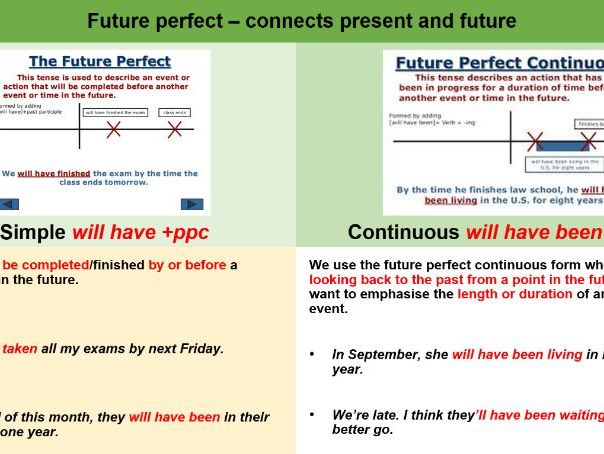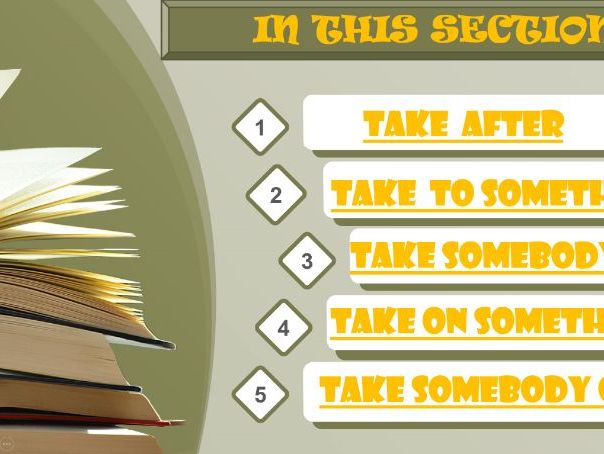38Uploads
3k+Views
65Downloads
All resources

Common expressions - speak as a native
There 20 commonly used expression you can hear from native speakers. Each and every phrase is explained,defined and heard in a short track, and meanings are helped by accompanying pictures. Practice slides included where the expressions must be used in context, and also a speaking task for making up possible dialogues.

Media vocabulary
This ppt introduces some special media vocabulary with exercises (matching; in context) and discussion questions.

The future tense in English
The future tense might be the most comprehensive tense in English. The ppt discusses, explains and practices different forms of future tense.

Do or make collocations with activites, practice and discussion questions
Each slide introduces two or three collocations that are often misused. There definitions, example sentences and pictures to make meanings clear. Practice slides and conversation questions (using the collocations) are included.

Idioms to talk about sadness
Each slide introduces an idiom to express sadness. Each idiom is used in an example sentence, definition and a picture are also given in order to make meaning clear. Practice exercises included.

Idioms to express happiness
Each slide of this ppt introduces an idiom to express happiness. Each idiom is used in an example sentence, definition and a picture are also added to make meaning as clear as possible. Practice slides are included.

Famous people with distinguishing marks
This ppt features famous people with marks that make them easily recognisable. Good vocabulary practice to describe people.

Drama games in the English classroom
This ppt features four drama games. The procedure for each game is explaned, and helping slides are included for ideas and examples.

Story-telling
The ppt tells two stories which are interrupted at certain points in the storyline and questions are asked about how the stories might go on. There are picture prompts for possible ideas for students to consider, but they can come up with any other ideas of their own.

Expressing and urging positive attitude idioms
The ppt introdouces a bulk of idioms to express and encourage positive attitude. Each idiom is explained through definition, example sentence and a picture. Practice slides included.

Phrasal verbs with TAKE
The ppt teaches TAKE phrasal verbs in groups of five. Example sentences and possible synonyms are given for each verb. Practice slides included.

Conditional linking words
This ppt intoduces linking words and expressions to be used in conditional sentences (if, if only, unless, in case, as long as, provided, etc.) Usage is explained and example sentences are given. Practice exercises are included (multiple choice, correct/incorrect, wordwall excercise).

Idioms using environment vocabulary
In this ppt students can learn idioms using environment vocabulary. Each idiom is explained by definition and used in an example sentence. Pictures are also there for further help. Practice is a speaking exercise - discussins questions using the idioms in the ppt.

Confusing collocations
Confusing collocations with make, take and have. Examples, definitions with pictures, practice slides included.

After holiday activities
This ppt offers skills activities after the summer holidays. Reading, speaking, listening (a song), vocabulary and grammar are all included with practice slides and exercises on Wordwall and Learnenglishapps.

Different topics - speaking and vocabulary
This ppt offers a number of different topics through discussion questions, vocabulary and related idioms (with definitions).

Gerund or infinitive through story-telling
This resource offers practice exercises for the use of gerund and/or infinitive after certain verbs and expressions.
Structures are used in a contexts through short stories. After each story, there is a speaking task as well.

The English Verb Tense
This ppt gives an overall idea of how English verb tenses can be identified and used with a lot of explanation, example sentences and practice exercises.
Verb tenses are scrutinized from 5-6 simple aspects, clues that you can follow when deciding on using a particular verb tense.


















